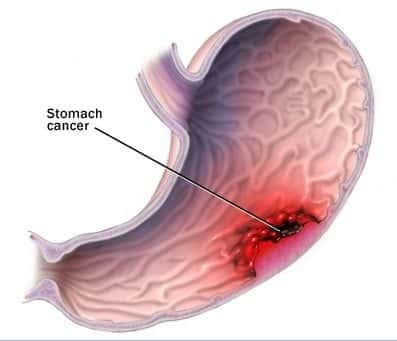This case involves a seventy-year-old male who presented to his family physician with complaints of abdominal pain, indigestion, and loss of appetite. He had smoked one pack of cigarettes a day for forty years. At first, his physician believed he was suffering from acid reflux and thought that his symptoms were aggravated by his diet since he stated that he loved to eat spicy foods. The physician advised him to cut back on those foods and advised him to take Nexium, a heartburn medication. They then scheduled a follow-up appointment. At his next appointment, the patient explained that his diet changes did not alleviate his symptoms. In fact, he experienced severe abdominal pain that limited him to soft foods. The physician explained that he may have a stomach ulcer. He prescribed him ranitidine, an antihistamine, and told him he would be fine with time. Two months later, the man contacted the family physician because he began to lose weight and felt extremely nauseous. He was referred to a gastroenterologist for further testing. Gastroscope exam revealed an area of ulceration which was biopsied. The pathologist noted that the man had stage 3 gastric adenocarcinoma. Upon being diagnosed, the man was scheduled for surgery to remove a portion of his stomach along with regional lymph nodes. The cancer returned after treatment, however, and was present in distant organs. The man died five months after being diagnosed with stomach cancer.
Question(s) For Expert Witness
1. Did this physician practice the standard of care when managing this patient, and, if not, what could have been done to achieve a better outcome?
Expert Witness Response
This physician conservatively addressed this man’s complaints. Although gastric cancer was a less common possibility, it should have been ruled out because it is very aggressive. Before prescribing ranitidine, the man should have gone for further testing to rule out more serious diagnoses such as cancer. Some risk factors that contribute to the development of gastric cancer include H. pylori infection, smoked and cured foods that are consumed by Asian populations, smoking, inflammatory conditions of the stomach (i.e. pernicious anemia), and being male. This patient was a Japanese male who had a significant smoking history. For at least three months, this man had symptoms consistent with gastric cancer that were neglected. If an earlier diagnosis was made, it is possible that the stage would have been lower. Therefore, he may have responded better to treatment, resulting in a longer lifespan.
About the author
Jason Cohn
Jason is a 4th year medical student pursuing a career in Otolaryngology/Facial Plastic Surgery. His Interest include sports, fitness, chemistry, otolaryngology, plastic surgery, allergy/immunology, surgical oncology, human genetics, public health, preventative medicine, and rheumatology.



